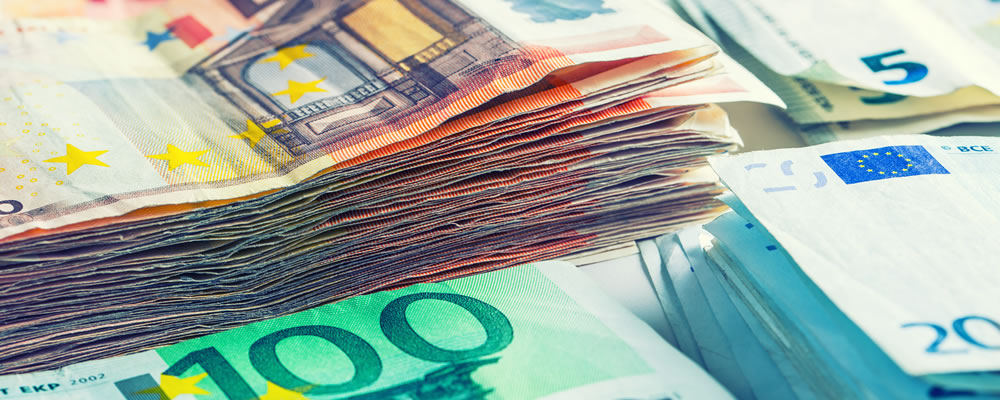After rallying on Thursday following the European Central Bank’s (ECB) decision to leave interest rates on hold, the Euro to Pound exchange rate edged slightly lower before the weekend. Will the pairing push higher next week? That largely depends on what tone the Bank of England adopts in its upcoming policy announcement.
- Weaker German production data weighed on Euro outlook – Signs of slowing within Eurozone’s powerhouse economy dented confidence
- Bank of England commentary reiterated odds of further interest rate cut – Pound set on downtrend as Brexit uncertainty resurged
- EUR GBP exchange rate surged in wake of less dovish ECB meeting – Lack of easing bias encouraged investors to pile back into single currency
With the Bank of England still on an easing bias the Euro to Pound exchange rate strengthened substantially, particularly after the European Central Bank proved less dovish than anticipated.
As policymakers appeared to remain generally confident in the outlook of the Eurozone economy there was little to deter the Euro from surging strongly.
Prospect of Further BoE Easing Boosted EUR GBP Exchange Rate
Confidence in the strength of the Eurozone’s powerhouse economy faltered further on Wednesday in response to disappointing Industrial Production data. Markets were not impressed to see that Germany’s industrial output had unexpectedly contracted in July, with this offering further evidence of slowing economic activity. German growth appears to remain primarily driven by strong domestic consumption, something that could prove fragile if political uncertainty escalates. As a result the Euro (EUR) was prompted to trend lower across the board, failing to benefit from the softness of the US Dollar (USD).
The mood towards the Pound (GBP) soured after commentary from members of the Bank of England (BoE), who maintained a generally dovish tone on monetary policy. BoE Governor Mark Carney made note of the fact that the bank’s forecasts had already factored in that domestic data would see a rebound in August, dampening the optimism that the stronger PMIs had provoked. Investors were equally discouraged by the indication that the Monetary Policy Committee (MPC) remains disposed to cut interest rates again if the economy is deemed to need further stimulation. This allowed the Euro to Pound (EUR GBP) exchange rate to rally strongly, despite the day’s weak Eurozone data.
Lack of Dovishness from ECB Prompted Surge in Euro (EUR) Demand
Although the RICS House Price Balance for August strongly bettered expectations this was not enough to shore up Sterling on Thursday morning. Accelerating from 5% to 12% on the month this indicated that the domestic housing market remained in a robust state in spite of the referendum result. Even so, with the threat of further monetary loosening hanging over the Pound and Brexit-based uncertainty mounting once again the EUR GBP exchange rate remained on an uptrend.
A strong surge was in store for the Euro on the back of the latest European Central Bank (ECB) policy meeting, which failed to deliver on markets’ dovish expectations. President Mario Draghi took a far less dovish tone on policy than anticipated in the accompanying press conference, surprising investors and prompting the single currency to climb higher across the board. As researchers at Lloyds Bank noted:
‘Clearly, markets expected more action or, at least, clearer signals from the ECB on additional stimulus measures. Nevertheless, the committees mentioned by Mr Draghi will be given a ‘full mandate’ to explore further stimulus options – which could include removing the deposit rate floor on bond purchases, raising bond issue limits or adjusting the capital key – to enable the ECB to continue with asset purchases beyond March 2017, as is still highly likely (in our view), given the weak inflation outlook.’
EUR GBP Exchange Rate Forecast: Robust German Trade Surplus Could Extend Euro Gains
Today’s German trade balance could offer further encouragement to the Euro, providing that the surplus is found to have remained wide in July. Investors will also be keen to see the accompanying import and export results, which are expected to show that imports slowed moderately on the month. If Germany’s trade outlook appears to be more positive then the EUR GBP exchange rate is predicted to make further gains, with strength here likely to fuel the ECB’s reluctance to ease again in the near future.
The Pound could find a rallying point, however, if July’s UK trade balance proves encouraging. Markets expect to see the visible trade deficit narrow from -12.4 billion to -11.6 billion Pounds, which would offer another sign that the UK economy had managed to escape too much of a negative impact from the initial Brexit vote uncertainty. However, any shortfall would see the appeal of Sterling weaken further and offer a fresh boost to the EUR GBP exchange rate.



